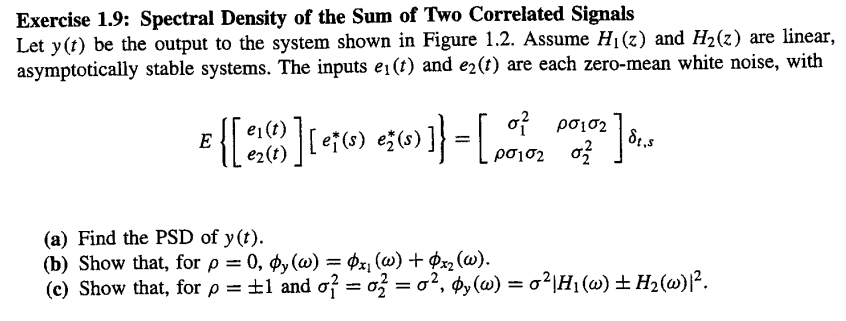I am trying to solve the following exercise, where $y(t)$ is the sum of two signals $x_1(t)$ and $x_2(t)$ with each of them being the product of the convolution of $e_i(t)$ with $h_i(t)$.
So far I have found that the PSD of $y(t)$ is equal to $|H_1(\omega)|^2\sigma_1^2 + \rho\sigma_1\sigma_2[H_1(\omega)^*H_2(\omega) + H_1(\omega)H_2^*(\omega)] + |H_2(\omega)|^2\sigma_2^2$. I am stuck on (c), is there any way that I can do without the conjugates so I can get $2\rho\sigma_1\sigma_2|H_1(\omega)H_2(\omega)|$?

